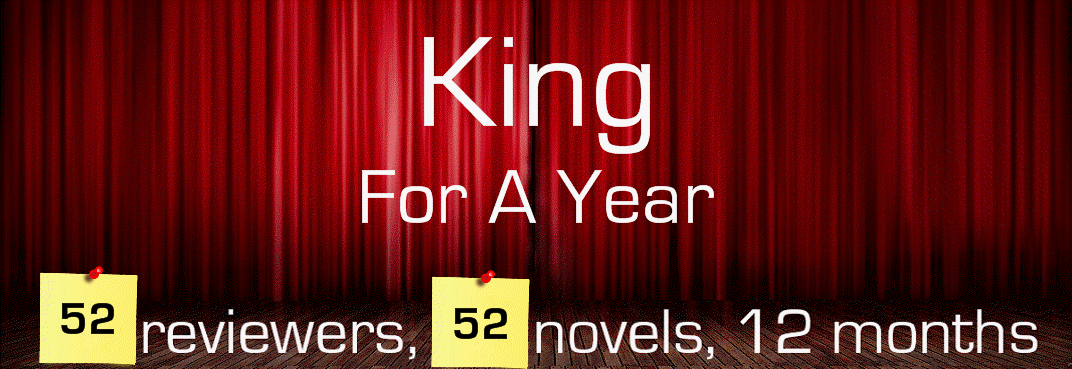It all begins with Elizabeth, who as a very little girl falls from a carriage and strikes her head on a stone. She ends up with something called a contrecoup injury, where impact on one side causes devastation on the other - and this is not only a type of injury shared by no less than three of the main characters but a metaphor for the events of the book. After her accident she starts to draw, and the very first thing she scrawls on blank paper is a line to represent the horizon. With that line, she begins to draw herself back into the world.
Of course her story is where it all begins, but we follow a very different story to find hers. Edgar Freemantle loses everything after an accident; his memory, his marriage, all the stability he’s spent over thirty years building upon. He is left with a blank surface. One of the things this book is about is building life back from emptiness, starting with only the horizon.
Unsurprisingly, Edgar starts to draw after his accident too and, like Elizabeth’s art, his gains a sort of magic, and like Elizabeth’s it is a dangerous magic, capable of taking as much as it gives.
"Duma Key", then, is a story about loss, about finding your way back in after the fact, and whether or not that is entirely possible. And of course there are some things you never come back from, some things that are unrecoverable. You cannot bring a life back once it is lost, but if you lose your way in life, lose all you’ve known, or lose a loved one, there are ways to come back from that and King examines minutely within the pages of "Duma Key" all the limitations, the possibilities and the quandaries of continuing when you cannot find either the horizon or the means (and sometimes even the will) to draw it back in.
I think one of the problems people have with this book is that it’s wrapped around a supernatural evil. There are readers who feel that weakens the story. Who think the novel goes downhill in the final third as they race to put a stop to Perse, the ancient evil who appears to creep in through the rents and fissures caused by the damage wrought in Elizabeth’s and then Edgar’s accidents, but they’re missing the point. Perse is not an afterthought or a dash of extra horror flavouring in the mix, she’s there right from the beginning, when Elizabeth falls from the carriage, when the crane crashes into Edgar’s car. Hers is the tune to which these people dance, all unknowing. She is the blow that causes the damage and a terrifying metaphor for the offhand cruelty of life, the absolute indifference of death.
There’s a great deal about looking but not seeing in this book. Missing the obvious because you simply can’t imagine it. I might not agree with the sentiment ‘God punishes us for what we can’t imagine’ but I see it at work in this story and it rings true for life in all its chaotic glory and horrors. That’s King’s gift, he writes life, writes people, writes them with such candour and clarity that we recoil from seeing ourselves as messed up, mistaken, malicious and inadequate as we are, and yet in turn he highlights all that is wonderful about mixed-up, messed up humanity. All that brings us the most joy.
Take for example my favourite character in this book, Jerome Wireman, the man who had everything and lost it. He’s an utterly broken man who even in his agony continues to care with absolute selflessness for Elizabeth and then Edgar. I adore his witticisms, his balls-out humour, his pragmatic and full blooded approach to what’s left of his life, his searing honesty. Every time I read this book I am Edgar, eternally grateful to Wireman for the simple act of being Wireman. We all need a Wireman in our lives, that person who will walk beside us through hell and never let us believe our own bullshit.
There’s so much I could talk about with regards to this book and how it holds me up, horror and all. I’ve read it over and over, it is one of my hedges against the night, was in fact the very thing that introduced me to that concept via the wonderful character Bozie and believe me, I live it. I have my hedges against the night, and they do work. Every time I read "Duma Key" I feel reaffirmed, warmed, heartbroken and at peace with my own damage all at once. It reminds me that, although life is messy, it is also a thing of extraordinary beauty and that art, no matter how supposedly mainstream, is a grand way of both celebrating and explicating those indisputable facts. That’s the magic of King’s writing, and this book, my favourite of all his books, lives and breathes that magic through every word.
“Know when you’re finished, and when you are, put your pencil or your paintbrush down. All the rest is only life.”
Ren is a writer of the strange, dark and bizarre, not known for an ability to fit into boxes of any description. She's repped by the fabulous Jennifer Udden of Donald Maass Literary Agency and has two cyberweird novels forthcoming in the UK and the US with Titan Books - ESCAPOLOGY in 2016 and VIROLOGY in 2017.
Ren tweets here: @RenWarom
Waffles on Facebook here: Ren Warom
Maintains a blog here
And her YouTube is here
note - Duma Key was also reviewed by Liz Barnsley on this link


No comments:
Post a Comment